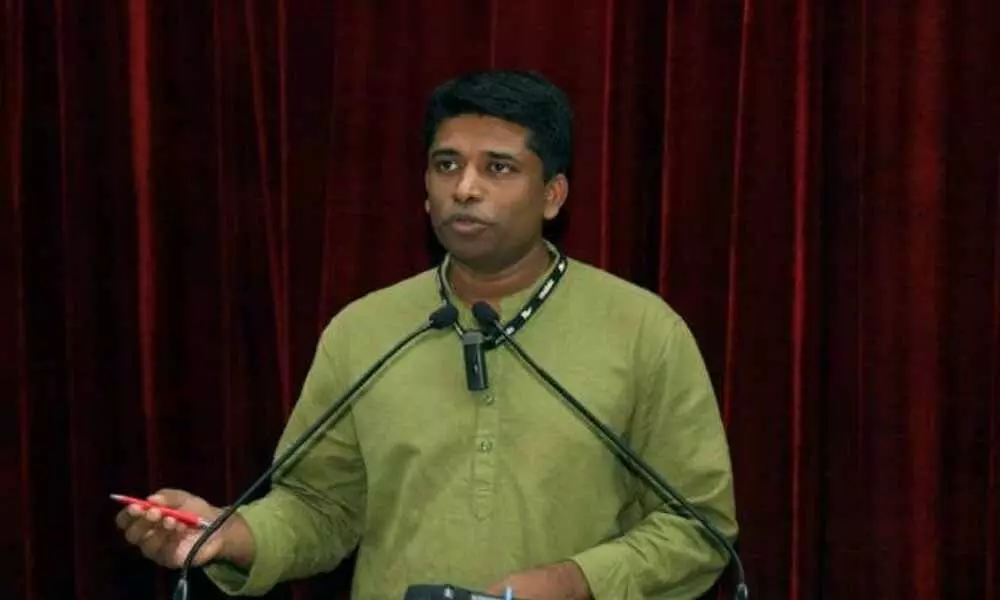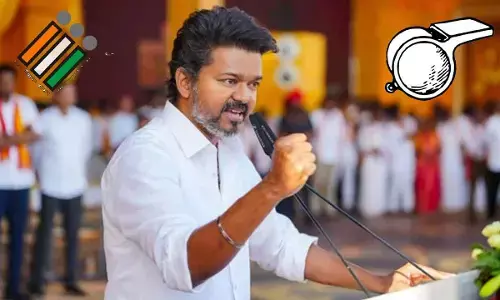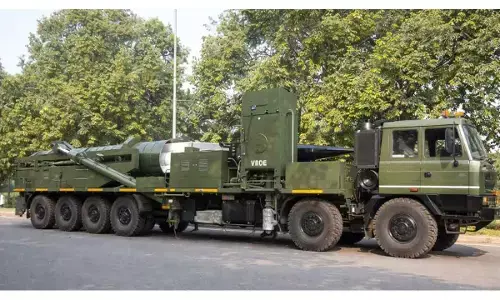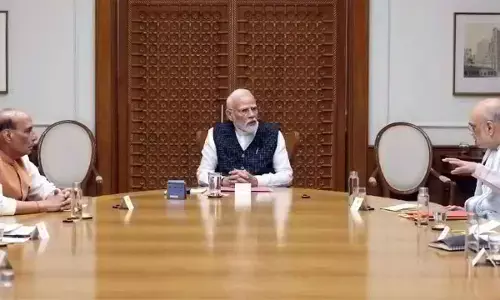Kannan Gopinathan reveals his experiences in service
Share :

Ex-IAS Officer Kannan Gopinathan Joins Congress, Stands for Freedom of Speech
The 2012 batch IAS officer, Kannan Gopinathan, who resigned citing the abrogation of Article 370 and 35-A in J&K as a reason, had received criticism and support from various quarters.
The 2012 batch IAS officer, Kannan Gopinathan, who resigned citing the abrogation of Article 370 and 35-A in J&K as a reason, had received criticism and support from various quarters. In this exclusive conversation, he raises concern over the lack of freedom of speech he felt while in service and the denial of fundamental rights to citizens:
Why oppose its abrogation if Article 370 was a mistake?
"I objected to the way it was done. Constitution clearly states- any changes to Article 370 should be made with the consultation and consent of the Constituent Assembly of J&K, or the Legislative Assembly in the absence of the former. Effectively it meant the consent of the people of J&K was crucial. They instead bypassed the views and opinions of the people without giving citizens a say. Forcing decisions upon people crookedly is unacceptable. It was enforced by locking down an entire state to avoid democratic response to the decision. The fundamental right of citizens to respond to a government's decision in a democracy was denied here and as a country, we kept our silence."
What are your views on the changes after article 370 was nullified?
"What has it achieved? How has India been integrated? Nothing has changed. Would revoking it decrease terrorism or make the people of Kashmir feel more like a part of India? The people are immensely hurt. Was development not happening due to Article 370? Kashmir still has the same territory. If anything, the Chinese took away some areas in Ladakh. That's the current reality."
How can people be brought closer?
"We would be more integrated if we are able to develop and connect; not with alienation and brute force as strategies. For a lot of people who had believed in the constitutional scheme of things, their belief that something which is mentioned as part of the Constitution would not be touched without following the correct procedure was shattered. The government must try to convince its citizens before any action."
Could special provisions concerning other states face issues too?
"These constitutional provisions are there because of historical peculiarity with which our country was formed. Law is ultimately a legal expression of the morals of society. When somebody with a different set of beliefs insists on the same law for everyone as desired by the majority, you're forcing your morals onto others. Special provisions cater to the special conditions of certain regions and areas. I sincerely hope the government doesn't start another front by touching Article 371. You shouldn't just start a fire everywhere because you can."
What are your views on the role of judiciary these days?
"Judiciary should always stand for citizen's rights. It is especially to protect people from high-handedness of the state that judiciary was created. But now, we have seen in many cases, the judiciary standing with the state, getting easily convinced and being more than willing to be convinced by the government, instead of weighing it against the constitutional rights. This is not how our system was envisaged. The latest example is that of Prashant Bhushan."
Were there any such experiences while in service?
"In Dadra & Nagar Haveli, when someone voiced their opinion against the government, we would be even asked to check what building by-laws they might have violated. There would be many others who would've done the same violations. But people who speak up and disagree with the government would be targeted with one law or the other, as a lesson for all. When even municipal laws are used to restrain citizens, it's dangerous to democracy. Also, there are many instances like being asked to imprison people under PASA/PSA/NSA without any substantial evidence. So aspirants for UPSC should be aware that there is a chance of officers being used as a tool to suppress people rather than providing service."
Is banning Chinese products an ideal strategy?
"Considering the recent developments in the Galwan valley, critical thinking and independent understanding is essential. The way to go about it is not by shutting down Chinese language institutions or products. Children and individuals must be encouraged to take up learning the language, predict and forewarn about their actions, thinking, underlying strategies etc. We need to develop scholarship on China and Chinese way of thinking to be prepared to deal with our largest neighbour who is a rising global power. We must think 10-15 years ahead than just reacting to the present alone."
What are your activities post-resignation?
"After resigning, I have travelled to around 65 districts to learn and understand many more issues I wasn't aware about. With immense faith in the constitution and democracy of our country, I believe the journey of an individual from being a subject to a citizen is most important, that we as a country have to undertake. We shouldn't be afraid to ask or seek answers about the shortage of jobs, inability to tackle a pandemic situation like other countries, citizens having to walk long distances to reach their homes during 2020 lockdown, beaten up in their own country or end up dying inside police stations. More young people must take active role in politics. I would continue expressing my opinions freely, for which entering electoral politics may not be absolutely necessary, though I'm not averse to it."
By Dr Anjana Varma
(The writer is the chairperson CSA, Dir TGL, Sr Dir FWO, and Editor, The Intl Journal)









